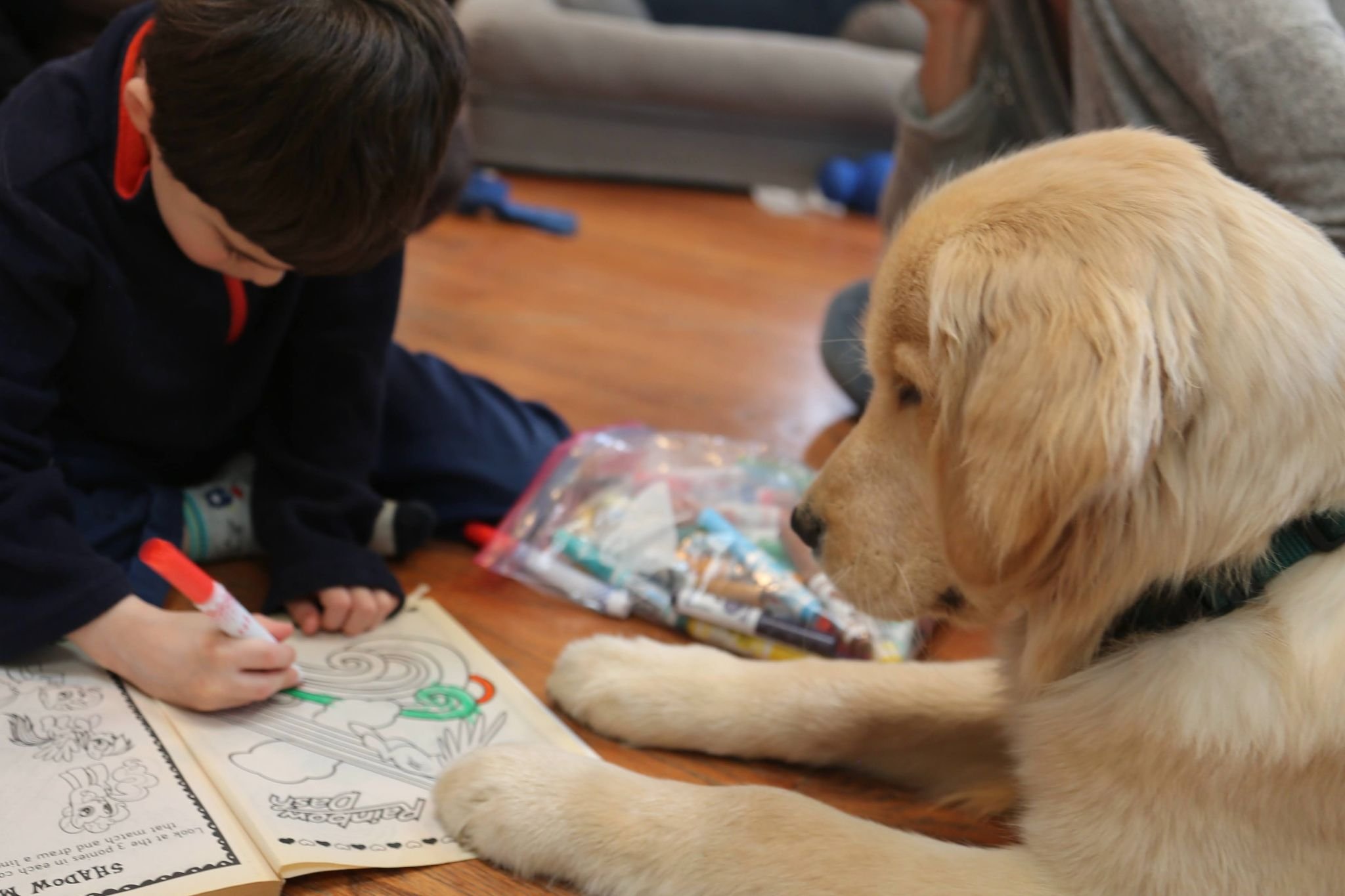
Services for Children
Does your child have BIG feelings? Are you tired of getting phone calls from the school about misbehaviors? Are your child’s worries controlling your family’s schedule?
Behavior is communication. Through child and child/parent therapy, you and your child can learn to communicate in safe ways, set limits, and get needs met. Rock Creek Forest Counseling offers a variety of therapeutic interventions to help children and caregivers.
Play Therapy
Rachel is a Registered Play Therapist™ with the Association for Play Therapy. Play therapy can help children with a range of social, emotional, and behavioral challenges, including anxiety, depression, ADD/ADHD, anger management, trauma, grief and loss, divorce and family conflict, academic challenges, social developmental, and physical and learning disabilities.
Play therapy is a structured approach to therapy that builds on the normal communicative and learning processes of children. Play therapy differs from regular play in that the therapist helps children to address and resolve their own problems. Therapists strategically use play therapy to help children express what is troubling them when they do not have the verbal language to express their thoughts and feelings.
Through play therapy, children learn to communicate with others, express feelings, modify behavior, develop problem-solving skills, and learn a variety of ways of relating to others. Play provides a safe psychological distance from their problems and allows expression of thoughts and feelings appropriate to a child’s development.
The Association for Play Therapy confers the Registered Play Therapist™ credential upon qualified licensed clinical mental health professionals to help parents, healthcare providers, and the public identify professionals who have obtained specialized training and experience in play therapy.
Synergetic Play Therapy™
In addition to being a Registered Play Therapist, Rachel is also a Certified Synergetic Play Therapist, which means she has completed 90 hours of additional training and supervision in Synergetic Play Therapy. SPT is a researched-informed model of play therapy blending the therapeutic power of play with nervous system regulation, interpersonal neurobiology, attachment, mindfulness, and therapist authenticity. In SPT, the child’s symptoms are understood as symptoms of a dysregulated nervous system, and the Synergetic Play Therapist aims to replicate the delicate dance of attunement that occurs between a caregiver and an infant. The result of Synergetic Play Therapy is that the child heals from the inside out and from the lowest parts of the brain up.
SPT was developed from the realization that it is possible to regulate another person’s nervous system by first regulating your own. Since then the fields of Neuroscience and Interpersonal Neurobiology (IPNB) have provided the science and research to confirm the profound healing that occurs when therapists are able to attune to themselves and co-regulate through the dysregulation that arises in the child’s play, allowing the child to move towards their challenging thoughts, feelings and body sensations. It is in this deeply resonate state that a synergy emerges allowing the child to heal and re-pattern their nervous system.
Animal Assisted Play Therapy®
Rachel is a Certified Animal Assisted Play Therapist® and Rogue is an approved therapy dog with the International Institute for Animal Assisted Play Therapy. AAPT is the integrated involvement of animals in the context of play therapy, in which appropriately trained therapists and animals engage with child, family, and adult clients primarily in play interventions aimed at improving the client’s psychosocial health, while simultaneously ensuring the animal’s well-being and voluntary engagement in the process. Play and playfulness are essential ingredients of the interactions and the relationship.
AAPT emphasizes the importance of relationships—the relationships between therapists and their animals, between therapists and clients, and between clients and animals. All activities and decisions are made within the frame of mutually respectful, beneficial, and fun relationships.
AAPT is an empowerment approach, focusing on building strengths while resolving difficulties. Primary mental health goal areas include:
Self-efficacy
Attachment and relationship
Empathy
Self-regulation
Specific problem resolution
Supportive Parenting for Anxious Childhood Emotions (SPACE)
Are your child’s worries out of control? Do you find yourself planning your day around your child’s worries and demands, to avoid tantrums and meltdowns?
Parents who participate in SPACE will learn skills and tools to help their child overcome anxiety. SPACE treatment focuses on changes that parents can make to their own behavior; they do not need to make their child change! When SPACE treatment is successful children feel less anxious and function better following treatment.
More About Play Therapy
How Kids Communicate
Introduction to Play Therapy for Caregivers
Why Play?
Play is the child's language. It expands self-expression, self-knowledge, self-actualization and self-efficacy. Play relieves feelings of stress, connects us to people in a positive way, stimulates creative thinking and exploration, regulates our emotions, and boosts our ego. In addition, play allows us to practice skills and roles needed for survival. Learning and development are best fostered through play.
Benefits of Play Therapy
Play Therapy helps children:
Become more responsible for behaviors and develop more successful strategies.
Develop new and creative solutions to problems.
Develop respect and acceptance of self and others.
Learn to experience and express emotion.
Cultivate empathy and respect for thoughts and feelings of others.
Learn new social skills and relational skills with family.
Develop self-efficacy and thus a better assuredness about their abilities.
Caregiver Role
Research suggests play therapy is an effective mental health approach, regardless of age, gender, or the nature of the problem, and works best when a parent, family member, or caretaker is actively involved in the treatment process. While giving children a safe space to express and process feelings in therapy is important, and the therapist will maintain a child’s confidentiality in therapy, caregiver involvement is essential for addressing any emotional or behavioral needs a child has. The amount and type of involvement may change depending on your child and their changing needs. Caregiver involvement in play therapy treatment may involve:
Weekly check-ins at the beginning of you child’s session
Caregiver/child sessions
Caregiver sessions, without the child
Information provided courtesy of the Association for Play Therapy, Synergetic Play Therapy Institute, International Institute for Animal Assisted Play Therapy, and SPACE Treatment.








